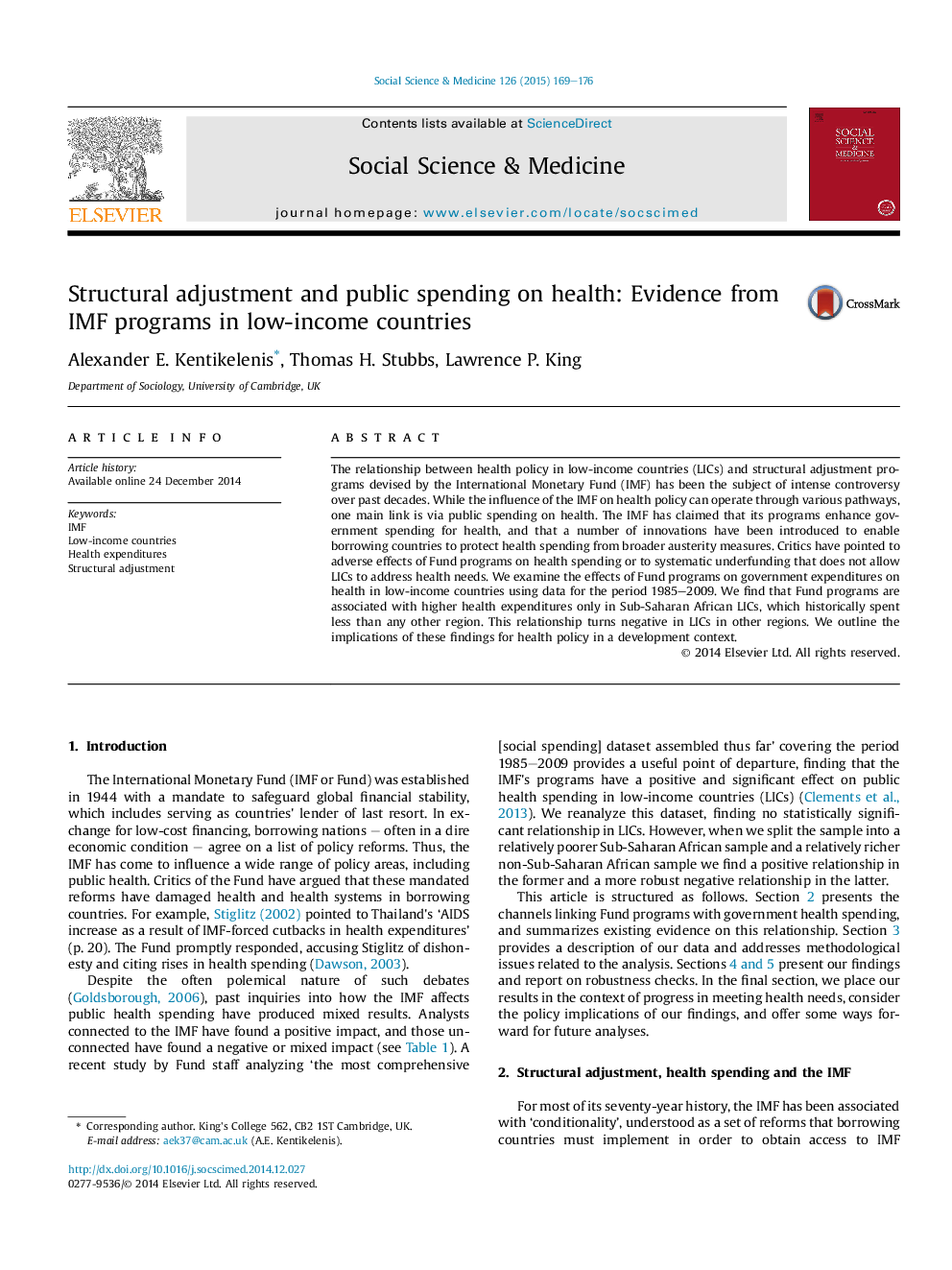| Article ID | Journal | Published Year | Pages | File Type |
|---|---|---|---|---|
| 7333645 | Social Science & Medicine | 2015 | 8 Pages |
Abstract
The relationship between health policy in low-income countries (LICs) and structural adjustment programs devised by the International Monetary Fund (IMF) has been the subject of intense controversy over past decades. While the influence of the IMF on health policy can operate through various pathways, one main link is via public spending on health. The IMF has claimed that its programs enhance government spending for health, and that a number of innovations have been introduced to enable borrowing countries to protect health spending from broader austerity measures. Critics have pointed to adverse effects of Fund programs on health spending or to systematic underfunding that does not allow LICs to address health needs. We examine the effects of Fund programs on government expenditures on health in low-income countries using data for the period 1985-2009. We find that Fund programs are associated with higher health expenditures only in Sub-Saharan African LICs, which historically spent less than any other region. This relationship turns negative in LICs in other regions. We outline the implications of these findings for health policy in a development context.
Related Topics
Health Sciences
Medicine and Dentistry
Public Health and Health Policy
Authors
Alexander E. Kentikelenis, Thomas H. Stubbs, Lawrence P. King,
